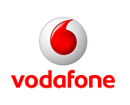A scheme to impose usage limits and speed throttles on Telekom Malaysia’s broadband customers was beaten back just a day after the plan was announced.
Malaysia’s largest telecommunications company announced the limitations at the same time in introduced new speed tiers and new pricing for them.
Customers were not pleased when they discovered TM’s UniFi broadband service came with high prices and usage caps:
TM UniFi Broadband Packages
- 5/5Mbps Service RM149/$46.73 now capped at 60GB per month.
- 10/10Mbps Service RM199/$62.41 now capped at 90GB per month.
- 20/20Mbps Service RM249/$78.09 now capped at 120GB per month.
In comparison, residents in nearby Singapore can buy 100Mbps service, with no limit, for RM200/$62.73 per month.
Those who exceed the limits would find their speeds throttled to about 10 percent of the speed they purchased, for the rest of the month.
Telekom Malaysia CEO Datuk Zamzamzairani Mohd Isa said the measures were part of its Fair Usage Policy.
“This policy is a standard industry practice to ensure that all subscribers get to enjoy the same web surfing quality,” he said.
Only it’s not standard industry practice, despite that often-heard excuse. In countries where usage limits are common, those limits are being eased or discontinued as broadband expansion and competition drives the unpopular usage limits out of the market.
Malaysians weren’t willing to wait.
The social media firestorm of protest that followed the announcement forced the company to back down just one day after announcing the Internet Overcharging scheme.
An announcement on Twitter, noting customer feedback, stated “no volume cap 4 all #unifi packages 4 now.” The company did say it would continue to “reserve the right to enforce a download limit to ensure all UniFi subscribers receive equal service quality,” but that type of language has been standard in service provider agreements for years.
Company officials told The Malaysian Insider customers “may abuse” the service, which is why they wanted the cap.
But customers feel they deserve value for money — the price being charged can be considered high for many countries in Asia even without the cap.
The Star newspaper notes:
With the latest announcement by Telekom Malaysia, many people are rejoicing. Among them is communications consultant Justin Then, who said he’s happy to note that Telekom Malaysia listens to consumers.
“Capping our high speed Internet access doesn’t make sense, if the Government wants Malaysians to seek out knowledge and be innovative,” he said.
A Twitter user, who asked to be identified only as Flo, said she’s glad Telekom Malaysia has decided not to employ the cap for now.
“We are paying a premium for technology that offers super high bandwidth, so a daily cap shouldn’t be applied. There’s no value in that; we would be better off with regular broadband,” she said.
One caveat. As has been the case with a handful of U.S. providers seeking to monetize your broadband usage, rescinding usage caps today doesn’t guarantee they won’t be back tomorrow. Indeed, TM has yet to remove them from their website, instead inserting in the fine print, “The monthly download volume policy will not be implemented until further notice.”
[flv]http://www.phillipdampier.com/video/Malaysia Telekom UniFi Promotional Video.flv[/flv]
TM’s slick promotional video unveiling the faster UniFi broadband packages asks y0u to “imagine.” We did… imagining how in the world we can accomplish all of the things they show in the video with the company’s proposed arbitrary usage limits and speed throttles. Imagine actually getting the service you paid to receive without a provider imagining how much use = “abuse.” (6 minutes)


 Subscribe
Subscribe







